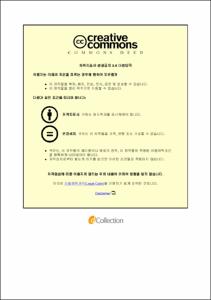임상영양서비스에 대한 간호사의 인식
- Abstract
- This study evaluates nurses’ perceptions of clinical nutrition services. A cross-sectional survey design was used. The data collection used questionnaires that were developed for this study and administered from 15 September to 15 December, 2013 to 343 nurses at 43 tertiary hospitals and 20 general hospitals. The nurses were classified as follows: over thirty years, 40.5%; bachelor’s degree, 70.4%, general nurse, 84.0%, less than 9 years’ of clinical experience, 42.5%; in tertiary hospitals, 82.5%; in capital hospitals, 63.3%. Nurses who knew a national certificate in clinical nutrition comprised 27.8%. The percentage of significantly occupied participants were as follows: over forty years (40.6%); master’s degree (39.4%); chief nurse (37.0%); over 20 years of clinical experience (41.8%). The mean score of the perceived usefulness of clinical nutrition service was 4.23/5.00, but that of perceived implementation was 3.76/5.00. The mean score of the necessity of disease-specialized clinical nutrition was 4.35/5.00. Older nurses were significantly higher for diabetes (p<0.01), obesity (p<0.01), infant and childhood disease (p<0.01), cancer (p<0.05) and senile disease (p<0.05). Nurses who held master’s degrees were significantly higher for diabetes (p<0.05) and kidney disease (p<0.01). Those who held high positions were significantly higher for cardiovascular disease (p<0.05). Nurses who had longer clinical experience were significantly higher for infant and childhood disease (p<0.01) and senile disease (p<0.01). Nurses who held the nationally recognized clinical dietitian’s certification were significantly higher for diabetes (p<0.05), obesity (p<0.001), cancer (p<0.05), infant and childhood disease (p<0.01), and senile disease (p<0.01). Nurses in capital hospitals were significantly higher for obesity (p<0.01), cancer (p<0.05) and infant and childhood disease (p<0.01). Nurses who had experience in implementing group education comprised 49.1%. Moreover experience was significantly (p<0.001) higher in over forty years (63.3%), master’s degree (76.5%), and 10 ~ 19 years clinical experience (60.7%). Moreover, nurses that held the nationally recognized clinical dietitian’s certification (76.8%) had significantly high (p<0.001) experience. According to region, the rates of group education about cancer were significantly higher (p<0.05) in the capital hospitals (21.7%) than in the local hospitals (10.3%). The mean scores of the importance placed on clinical nutrition services were 4.27/5.00; 4.46/5.00 for "individual consultation", 4.46/5.00 for "group nutrition education" and 4.40/5.00 for "nutrition management for enteral nutrition (EN) patients". The ages of thirty (4.32/5.00) and over forty (4.38/5.00) were (p<0.001) significant. In addition, master’s degree or higher (4.42/5.00), chief nurse (4.42/5.00) and 10 ~ 19 years clinical experience (4.31/5.00) were significantly high (p<0.01). According to region, capital hospitals (4.31/5.00) were significantly high (p<0.05). The most frequent reason that clinical nutrition service is important in disease treatment was "improving malnutritional status". The results suggested the activation of clinical nutrition services especially in local hospitals, and clinical dietitians should give systematic, practical helps to patients. In addition, institutional support for the proper placement of clinical dietitians specializing in disease is recommended.
- Issued Date
- 2015
- Awarded Date
- 2015. 2
- Type
- Dissertation
- Publisher
- 부경대학교
- Affiliation
- 부경대학교
- Department
- 산업대학원 임상영양학과
- Advisor
- 류은순
- Table Of Contents
- 1. 서론
1.1. 서언
1.2. 연구의 목적
2. 이론적 배경
2.1. 임상영양서비스
2.1.1. 임상영양서비스 정의
2.1.2. 임상영양서비스 효과
2.2. 임상영양사
2.3. 전문간호사제도
3. 연구대상 및 방법
3.1. 연구대상 및 기간
3.2. 연구방법
3.3. 연구내용
3.4. 자료분석
4. 연구결과
4.1. 간호사의 일반사항
4.2. 일반사항에 따른 임상영양서비스에 대한 견해
4.2.1. 임상영양사의 국가자격증 인지 여부
4.2.2. 임상영양서비스의 유용도와 시행정도에 대한 인식
4.2.3. 질병별 전문 임상영양사의 필요도
4.2.4. 질병별 집단교육 시행 경험 여부 및 종류
4.2.5. 임상영양서비스의 중요도
4.3. 임상영양사의 국가자격증 인식 여부에 따른 임상영양서비스에 대한 견해
4.3.1. 임상영양서비스의 유용도와 시행정도에 대한 인식
4.3.2. 질병별 전문 임상영양사의 필요도
4.3.3. 질병별 집단교육 시행 경험 여부 및 종류
4.3.4. 임상영양서비스 중요도
4.4. 병원유형 및 지역에 따른 임상영양서비스에 대한 견해
4.4.1. 병원 유형 및 지역에 따른 간호사의 일반사항
4.4.2. 임상영양사 자격증, 임상영양서비스의 유용도 및 시행 정도에 대한 인식
4.4.3. 질병별 전문 임상영양사의 필요도
4.4.4. 질병별 집단교육 시행 경험 여부 및 종류
4.4.5. 임상영양서비스의 중요도
4.5. 임상영양서비스가 중요한 이유
5. 요약
6. 참고문헌
- Degree
- Master
- Files in This Item:
-
-
Download
 임상영양서비스에 대한 간호사의 인식.pdf
기타 데이터 / 1.06 MB / Adobe PDF
임상영양서비스에 대한 간호사의 인식.pdf
기타 데이터 / 1.06 MB / Adobe PDF
-
Items in Repository are protected by copyright, with all rights reserved, unless otherwise indicated.